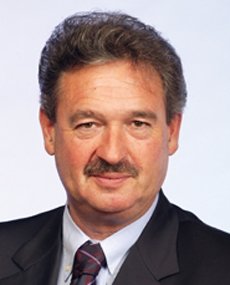On Jan. 30, current European Union (EU) President Jean Asselborn announced lifting sanctions from 2003 placed on Cuba, in order to release several imprisoned political dissidents. By the time the sanctions were lifted, 14 of the 75 dissidents had been freed. The EU also promised to heighten relations with opponents of President Fidel Castro and “develop more intense relations with the peaceful political opposition and broader layers of civil society in Cuba,” reported the BBC.
Previously, the sanctions were placed on Cuba in March 2003, when the 25-member EU revoked visits to Cuba in protest to the government’s disregard for human rights.
Other EU decisions included: dropping participation in cultural events, a re-evaluation of the EU role in Cuba, and invitations to Cuban dissidents on national-day celebrations. Before the sanctions, the dissidents attended cocktail parties with the EU in order to keep the message of the dissidents out in the open.
“The problem is not getting invited to receptions. I can drink rum at any corner bar with an ambassador,” said Cuban dissident journalist Manuel Vazquez Portal to TVNZ news. “The issue is recognition for an opposition movement that has been repressed for so long.”
According to the BBC, reasoning behind the sanctions was due to the imprisonment of 75 dissidents and the execution of three hijackers attempting emigration to the U.S. in April 2003.
“The EU is deeply concerned about the continuing flagrant violation of human rights and of fundamental freedoms of members of the Cuban opposition and of independent journalists,” read a statement by the EU.
As reported in the Havana Journal, Cuba responded to the 2003 sanctions by claiming the EU was “serving U.S. interests through recent criticisms of the Fidel Castro government.”
The EU hopes the current sanction lift it will lead to more respect for human rights in a country where people are imprisoned for expressing political opposition.
“With the European Union deciding to lift the sanctions and no longer comply with the U.S., it shows the power the U.S. had over directing foreign policy is not as strong now,” said Assistant Professor of History Anore Horton. “Punishing Cubans because the U.S. doesn’t like the politics of their government is just really a cruel policy and has led to a lot of problems for Cubans in every day life.”
Unfortunately, according to The New York Times, the Communist President jeered at the recent lifts by saying: “Cuba does not need the United States; Cuba does not need Europe. How satisfying it is to be able to say that.”
There are several individuals in the EU who, like Castro, disagree with the new policy and feel that the sanction lift and attempted dialogue with Cuba will not be effective.
Former Czech President Vaclav Havel denounced the “appeasement” of Castro and told the New York Times, “the EU was dishonoring the European ideals of freedom, equality and human rights.”
Some Cuban dissidents also expressed alarm with the new policy. They worry that this will give more strength to Castro’s rule and warned the EU that they could easily become an “accomplice to continued repression on the island,” reported The New York Times.
The US government also expressed concern with the new strategy, reminding the EU that all previous efforts with improving conditions in Cuba through dialogue have failed.
Regardless, the EU strongly feels that reopening Havana for diplomats was a necessary step for a post-Castro era. For the future, the EU will continue to demand the release of political dissidents.

